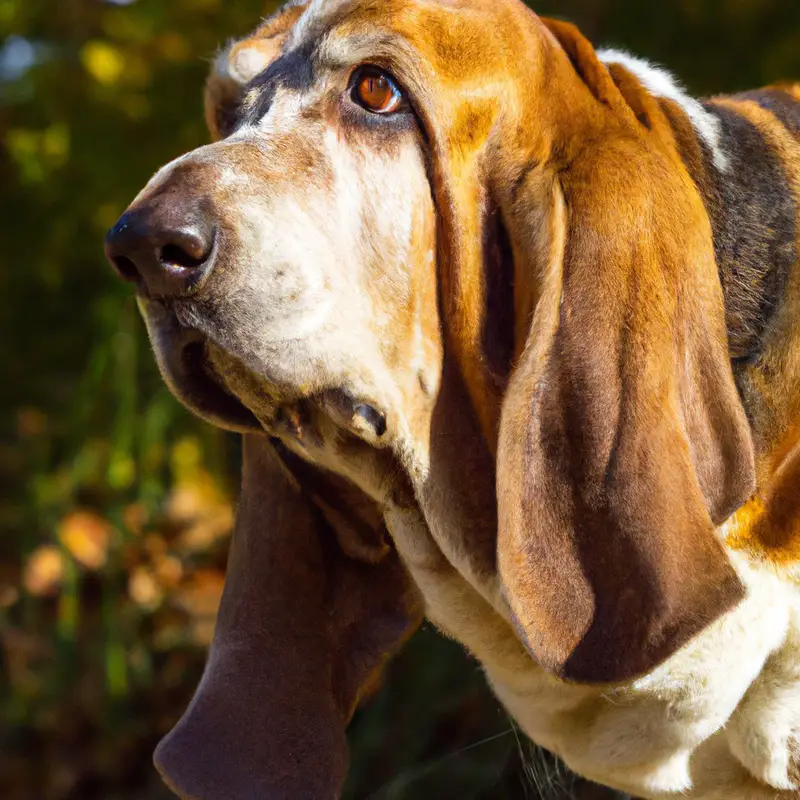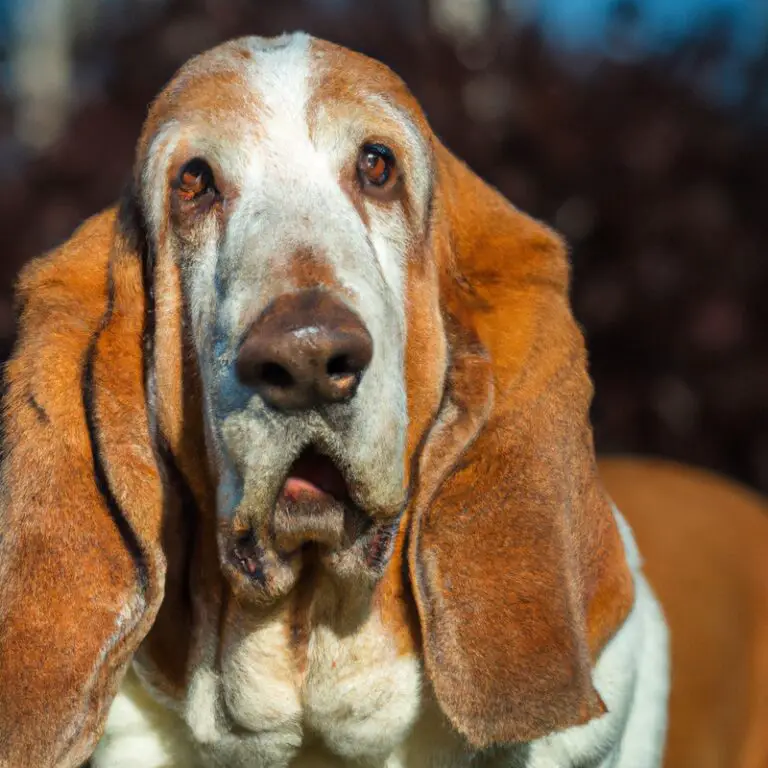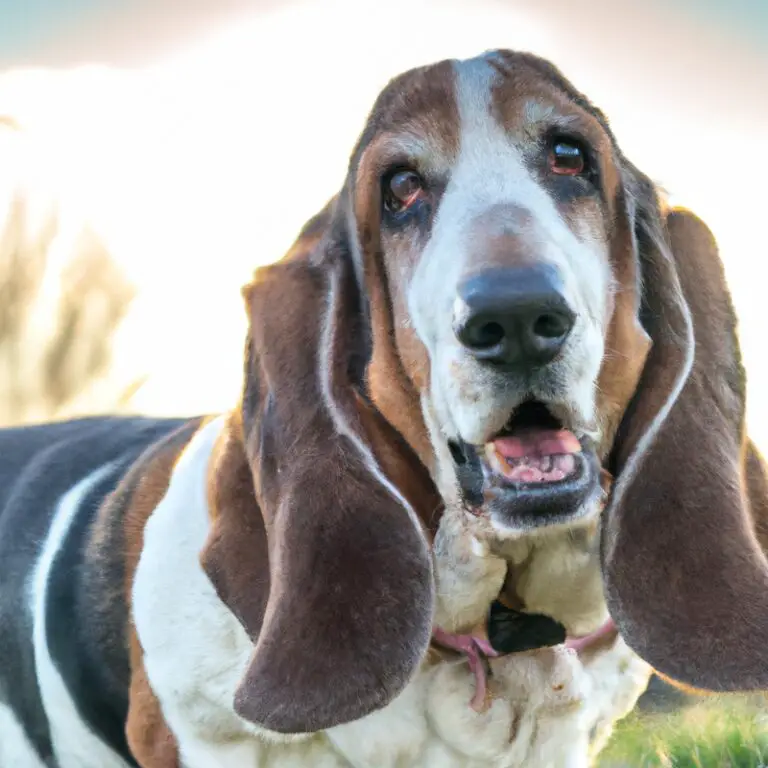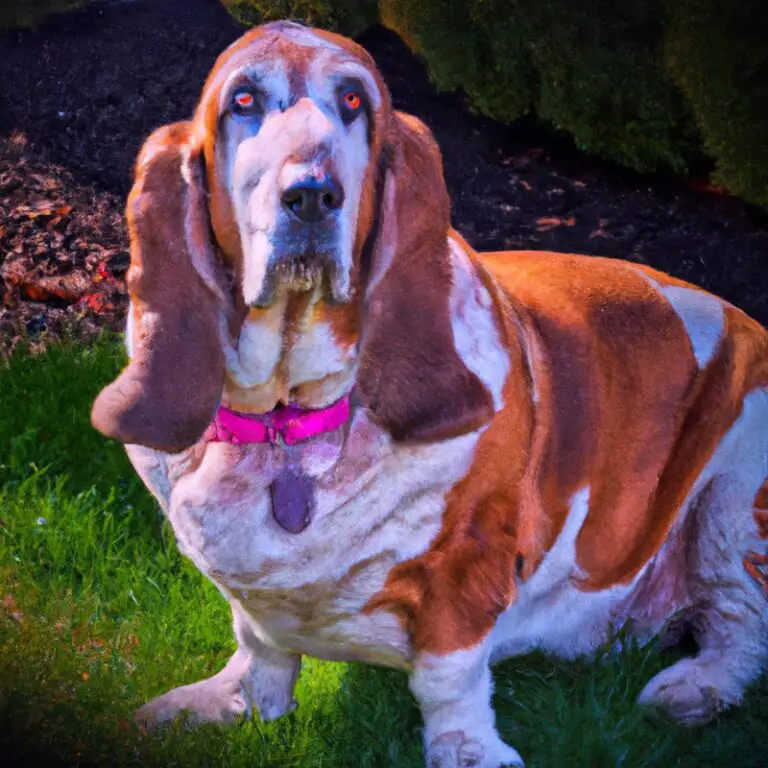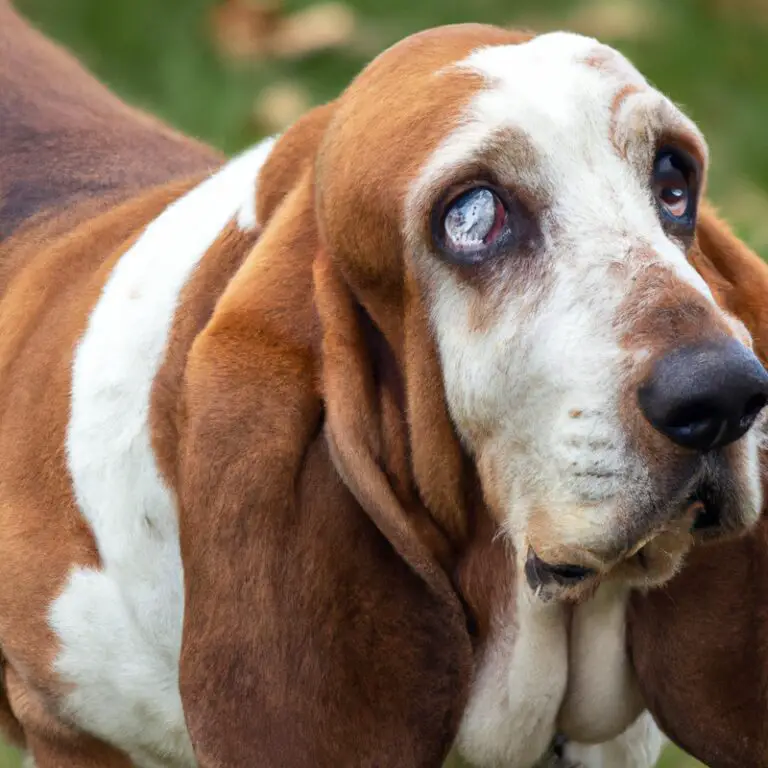Can Basset Hounds Be Trained To Do Tricks?
Key Takeaways:
- Basset Hounds can be trained to do simple tricks with patience and consistency.
- Basic obedience training is essential before attempting to teach tricks to Basset Hounds.
- Basset Hounds have a tendency to be independent and stubborn, making training more challenging.
- Positive reinforcement techniques work best when training Basset Hounds to perform tricks.
Are you a proud Basset Hound owner wondering if your adorable droopy-eared companion can learn some impressive tricks?
Well, you’ve come to the right place! As an experienced dog trainer and enthusiast, I’ve had the pleasure of working with many Basset Hounds and have seen firsthand the incredible potential they have.
In this blog article, we’ll delve into the personality and trainability of Basset Hounds, share some effective training tips, explore basic and advanced tricks you can teach them, discuss the challenges you may encounter, and even guide you on when it’s appropriate to seek professional help.
So, let’s dive in and discover just how capable Basset Hounds can be when it comes to mastering tricks!
| Question | Answer |
| Can Basset Hounds be trained to do tricks? | Yes |
| Trainability | Low to moderate |
| Ability to Learn Tricks | Depends on individual dog |
| Required Time and Patience | High |
| Breed Characteristics | Independent, stubborn, easily distracted |
| Popular Tricks for Basset Hounds | Sit, stay, lie down, shake paws, high five, roll over |
| Training Techniques | Positive reinforcement, reward-based training |
| Potential Challenges | Short attention span, selective listening, motivation issues |
| Recommended Training Resources | Professional dog trainers, online training courses, books |
Understanding Basset Hounds’ Personality and Trainability
Recognizing the traits of Basset Hounds
Basset Hounds are known for their distinctive appearance and laid-back personalities.
Here are some key traits to recognize in this breed:
- Scent Hounds: Bassets have an exceptional sense of smell, often following scents for miles. They have a strong instinct to track and explore, so they may wander if left unsupervised outside.
- Independent Nature: Bassets can be quite independent and stubborn at times. They may not always obey commands right away and may require patience and consistency in training.
- Gentle and Friendly: Despite their stubbornness, Basset Hounds are generally gentle and friendly dogs. They get along well with children and other pets, making them a great family companion.
- Relaxed Demeanor: Bassets have a laid-back and easygoing temperament. They enjoy lounging around and may require moderate exercise to avoid overweight.
- Vocal Communicators: Basset Hounds are known for their deep and expressive bark. They use their voice to express different emotions, whether it’s excitement, boredom, or distress.
Understanding these traits will help you better connect with and train your Basset Hound.
Keep in mind their independent nature and gentle temperament while working on obedience and trick training.
Assessing the trainability of Basset Hounds
Assessing the trainability of Basset Hounds can be a bit challenging. While they are intelligent dogs, their stubborn nature can make training more difficult.
Basset Hounds have a tendency to follow their own instincts, which can make them less responsive to commands.
However, with patience, consistency, and positive reinforcement, it is possible to train them. Their trainability may vary from dog to dog, so it’s important to understand and work with their individual personalities.
It’s also helpful to start training them from an early age to establish good habits.
Tips for Training Basset Hounds
Start training from an early age
To successfully train a Basset Hound, it’s important to start their training from an early age.
This is because puppies have an easier time learning and adapting to new behaviors compared to adult dogs.
By starting early, you can establish good habits and prevent bad behaviors from developing.
Training sessions should be short and fun, focusing on positive reinforcement techniques.
Consistency and patience are key, as it may take time for your Basset Hound to fully grasp the desired commands and tricks.
With dedication and a gentle approach, you can teach your Basset Hound a variety of tricks and behaviors.
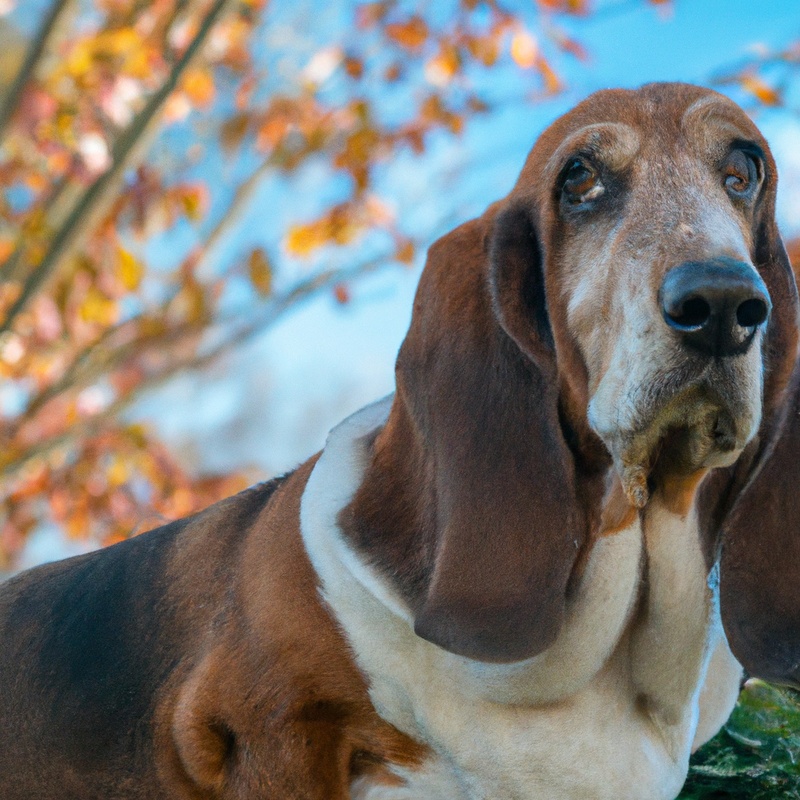
Use positive reinforcement techniques
Positive reinforcement is a highly effective training technique for Basset Hounds. It involves rewarding good behavior instead of punishing bad behavior.
When training your Basset Hound, make sure to reward them with treats, praise, or playtime when they perform the desired action correctly.
This positive reinforcement helps them associate that behavior with something positive and encourages them to repeat it in the future. Consistency and patience are key when using this technique.
Remember to always reward your Basset Hound for their efforts and progress.
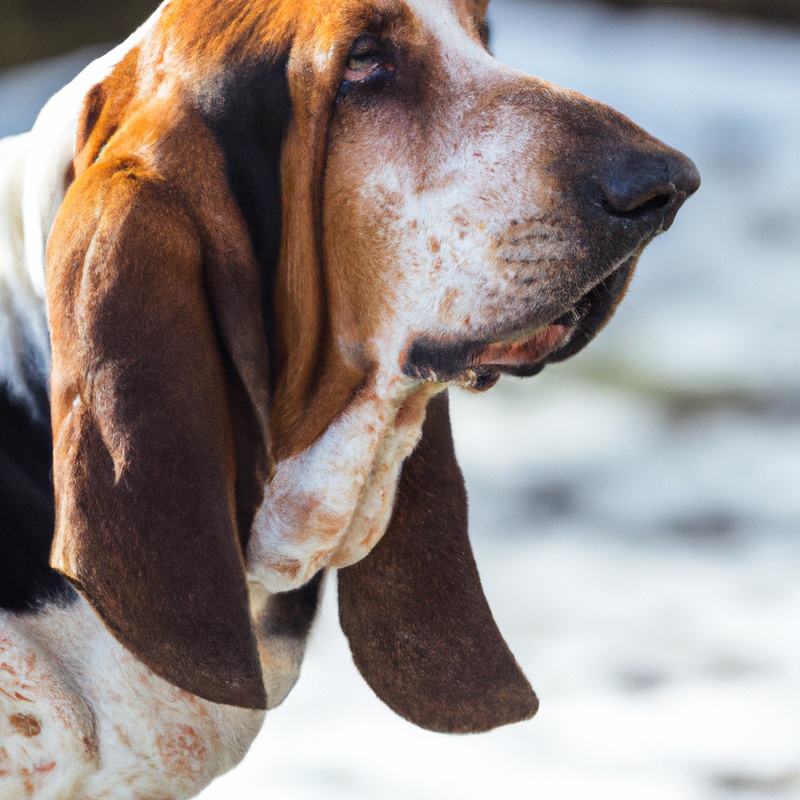
Keep training sessions short and engaging
When it comes to training your Basset Hound, it’s important to keep the training sessions short and engaging.
This helps to maintain your dog’s focus and prevent them from getting bored or distracted.
Try breaking up the training into multiple short sessions throughout the day, rather than one long session.
Use positive reinforcement techniques like treats and praise to motivate your Basset Hound and make the training experience enjoyable for them.
Keep the training sessions fun and interactive, incorporating play and games to keep your dog engaged.

Be patient and consistent with training
When training your Basset Hound, it’s important to be patient and consistent. Basset Hounds can be stubborn, so it may take time for them to learn new tricks.
Stay calm and avoid getting frustrated.
Set a regular training schedule and stick to it. Keep the training sessions short and engaging to maintain your dog’s interest.
Remember, your Basset Hound wants to please you, so with patience and consistency, you can achieve great results in training.
Basic Tricks to Teach Basset Hounds
Teaching Basset Hounds to Sit and Stay
Teaching your Basset Hound to sit and stay is an important foundation for their training.
To teach them to sit, hold a treat above their head and slowly move it towards their tail, causing them to lower their rear end.
When they are in a seated position, reward them and give them praise.
For the “stay” command, start with having them sit and then take a small step back.
If they stay in the seated position, reward them.
Gradually increase the distance and duration of the “stay” command.
With consistent practice and positive reinforcement, your Basset Hound will learn these commands.
Training Basset Hounds to Lie Down
Training Basset Hounds to lie down can be a useful and practical command to teach your furry friend.
Here are some straightforward steps to achieve this:
- Find a quiet and distraction-free environment to train in.
- Have some treats ready as a reward for your hound.
- Start with your hound in a sitting position. Hold a treat close to their nose, then slowly bring it down towards the ground.
- As your hound follows the treat with their nose, their body will naturally lower into a lying down position.
- Once they are fully lying down, give them the treat and praise them.
- Practice this command frequently, gradually reducing the need for treats and using verbal praise instead.
- Be patient and consistent, and always end the training sessions on a positive note.
Teaching Basset Hounds to Come when Called
Teaching Basset Hounds to come when called can be a challenge, but with consistency and positive reinforcement, it’s definitely possible. Here are a few tips:
- Start in a quiet, distraction-free environment. Call your Basset Hound by their name and use a happy, upbeat tone.
- Use treats or toys as rewards when they come to you. This positive reinforcement will encourage them to respond to your call.
- Gradually increase the distractions and distance. Practice in different areas, such as the backyard or a park, where there are more distractions. Start with short distances and gradually increase the distance as they improve.
- Never punish or scold your Basset Hound if they don’t come immediately. This will only make them hesitant to respond. Instead, stay patient and try again.
Remember, training takes time and patience. Keep the sessions short, fun, and rewarding for your Basset Hound.
Advanced Tricks for Basset Hounds
Teaching Basset Hounds to Roll Over
Teaching a Basset Hound to roll over is a fun trick that can be accomplished with patience and positive reinforcement.
Start by getting your dog into a lying down position.
Then, take a treat and move it in a circular motion above their head, guiding them to roll onto their side.
Reward them with the treat and praise.
Gradually increase the amount of rolling until they complete a full roll.
Practice regularly and keep training sessions short and engaging.
Be patient and consistent, and your Basset Hound will soon be rolling over on command.
Training Basset Hounds to Shake Paw
To train your Basset Hound to shake paw, start by getting some small treats as rewards. Begin by holding a treat in your closed hand and offering it to your dog.
When they sniff or paw at your hand, say “shake” and reward them with the treat.
Repeat this process, gradually introducing the command without the treat in your hand. Remember to be patient and consistent with training sessions, keeping them short and engaging.
Soon enough, your Basset Hound will learn how to shake paw on command!
Teaching Basset Hounds to Play Dead
Teaching Basset Hounds to play dead can be a fun and impressive trick. Start by teaching them to lie down on command.
Once they’ve mastered that, you can then gradually introduce the “play dead” cue by gently rolling them onto their side and rewarding them with treats.
Practice this regularly, reinforcing the behavior with positive reinforcement. Remember to keep training sessions short, be patient, and celebrate their progress.
Happy training!
Challenges in Training Basset Hounds
Dealing with Basset Hounds’ stubbornness
Basset Hounds are known for their stubborn nature, which can make training challenging.
Here are a few tips for dealing with their stubbornness:
- Be patient: Basset Hounds may take longer to learn commands, so it’s important to remain patient throughout the training process.
- Use positive reinforcement: Reward good behavior with treats and praise to motivate your Basset Hound and encourage them to cooperate.
- Keep training sessions short: Basset Hounds have a short attention span, so keeping training sessions brief and engaging will help maintain their focus.
- Be consistent: Consistency is key when training a Basset Hound. Use the same commands and techniques consistently to avoid confusion.
- Seek professional help if needed: If you’re struggling to train your Basset Hound, don’t hesitate to seek the assistance of a professional dog trainer who has experience with stubborn breeds.
Handling Basset Hounds’ sensitivity
Basset Hounds are known for their sensitive nature, so handling their sensitivity requires a gentle approach.
Here’s how I do it:
- Use positive reinforcement: Reward good behavior with treats, praise, and affection. This helps build trust and encourages them to respond positively.
- Be patient and understanding: Understand that Basset Hounds may take longer to learn new commands or tricks. Avoid getting frustrated and instead remain calm and patient.
- Avoid harsh training methods: Punishment or harsh corrections can cause anxiety and fear in Basset Hounds. Stick to positive reinforcement techniques to maintain their trust.
- Create a calm and safe environment: Reduce loud noises or sudden movements that may startle or stress your Basset Hound. Provide a quiet space for them to retreat to when they feel overwhelmed.
Remember, each Basset Hound is unique, so adapt your training methods accordingly.
With a gentle and patient approach, you can effectively handle their sensitivity and help them thrive.
Overcoming Basset Hounds’ distractibility
Basset Hounds are known for their distractibility, but it’s possible to overcome this challenge with the right approach.
Firstly, create a distraction-free environment during training sessions by eliminating noisy or stimulating elements.
Secondly, use high-value treats and rewards to capture and hold their attention.
Additionally, break down training exercises into smaller, manageable steps to prevent them from getting overwhelmed.
Patience and consistency are key when working with Basset Hounds, so keep practicing and reinforcing good behavior.
With time and effort, you can help your Basset Hound overcome their distractibility and focus on training.
When to Seek Professional Help
Identifying when professional training is needed
Identifying when professional training is needed for your Basset Hound can be determined by a few key indicators.
Look for signs of aggression, fear, or destructive behavior that may require a professional’s expertise.
If your Basset Hound consistently ignores basic commands or struggles with leash manners, it’s worth considering professional help.
Additionally, if you lack the time, patience, or experience to adequately train your Basset Hound, seeking professional guidance can be beneficial.
Remember, professional trainers have the skills and knowledge to address specific behavioral issues and customize training techniques for your unique pup.
Finding a reputable dog trainer for Basset Hounds
When looking for a reputable dog trainer for your Basset Hound, there are a few key things to consider. First, look for trainers who have experience specifically with Basset Hounds or other scent hound breeds.
They will be familiar with their unique needs and traits.
Second, ask for recommendations from other Basset Hound owners or local dog clubs. Hearing about others’ experiences can help you find a trainer who has a good reputation.
Finally, schedule a consultation with potential trainers to discuss their training methods and see if they align with your goals and values.
Trust your instincts and choose a trainer who makes you feel comfortable and confident in their abilities.
Final Verdict
Basset Hounds can definitely be trained to do tricks, although their independent nature and stubbornness can present some challenges.
By understanding their personality traits and utilizing positive reinforcement techniques, you can successfully teach them basic and even advanced tricks.
However, it’s important to remember that patience, consistency, and short, engaging training sessions are key.
If you’re struggling or not seeing progress, don’t hesitate to seek professional help.
With the right approach and training, Basset Hounds can surprise you with their ability to learn and perform tricks.
Trust me, with dedication and some expert guidance, you’ll be amazed at what your Basset Hound can do.

